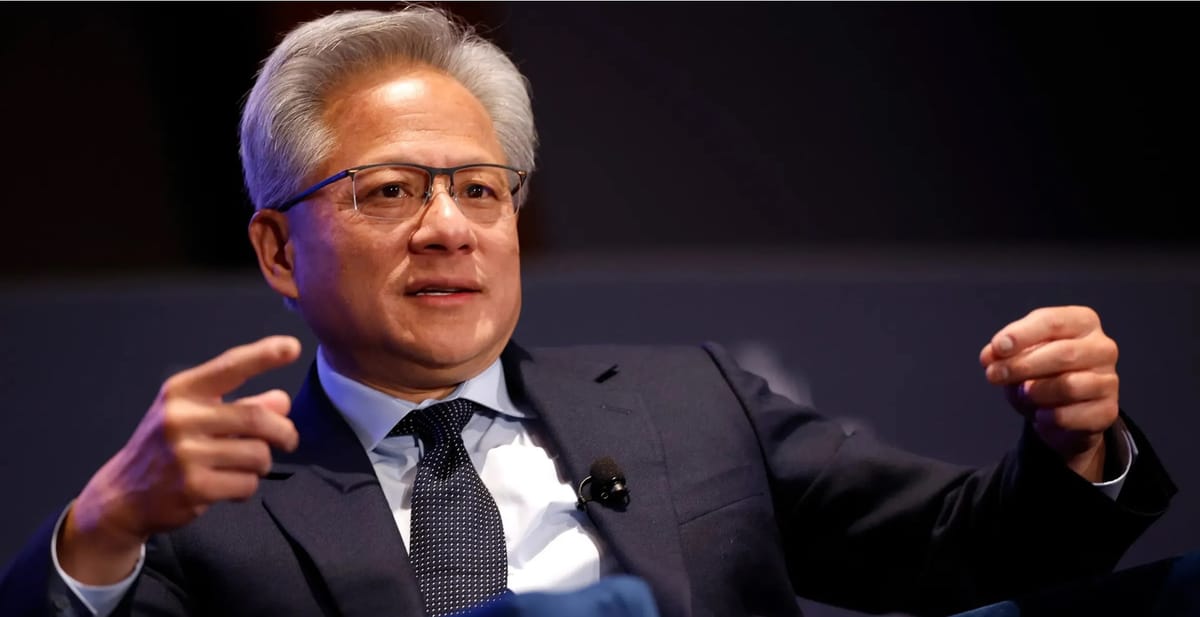NVIDIA has launched a direct and unusually blunt attack on AI startup Anthropic over U.S. chip export restrictions, dismissing the company's claims about Chinese smuggling tactics as "tall tales" in a growing public feud between two major AI ecosystem players.
Key Points:
- NVIDIA directly challenged Anthropic's claims about chip smuggling methods, calling them "tall tales" in an unusually public dispute
- The clash highlights growing tensions between AI companies over export controls set to take effect May 15th
- NVIDIA CEO Jensen Huang lauded Chinese tech prowess even as his company braces for tighter export restrictions.
The dispute erupted after Anthropic published a blog post Wednesday strongly endorsing the Biden-era "AI Diffusion Rule" set to take effect May 15th. Anthropic's post specifically highlighted alleged smuggling operations involving chips hidden in "prosthetic baby bumps" and "packed alongside live lobsters" — claims that appear to have particularly irked the chip manufacturer.
"American firms should focus on innovation and rise to the challenge, rather than tell tall tales that large, heavy, and sensitive electronics are somehow smuggled in 'baby bumps' or 'alongside live lobsters,'" an NVIDIA spokesperson told CNBC on Thursday.
In its post, Anthropic asserted that "maintaining America's compute advantage through export controls is essential for national security and economic prosperity," and proposed several recommendations to strengthen the framework, including lowering export thresholds for Tier 2 countries and increasing enforcement funding.
NVIDIA's response makes it clear that the company views Anthropic's position as an attempt to manipulate policy for competitive advantage rather than legitimate security concerns. "China, with half of the world's AI researchers, has highly capable AI experts at every layer of the AI stack. America cannot manipulate regulators to capture victory in AI," the NVIDIA spokesperson said.
Anthropic referenced specific incidents to back its smuggling claims, including a 2022 arrest of a woman carrying chips into China and a 2023 seizure of GPUs shipped with lobsters in Hong Kong. But NVIDIA's retort raises a fair question: are these dramatic tales emblematic of a systemic threat, or colorful outliers that risk painting policy with too broad a brush?
Yet NVIDIA's posture is understandably nuanced. The company depends on global chip sales for revenue—and its H100 accelerators are central to both Anthropic’s and countless other labs’ training pipelines. Tighter export rules threaten to bleed into overseas markets, potentially denting NVIDIA's growth even as domestic policy champions its technology.
Meanwhile, the policy environment is far from settled. President Trump is reportedly weighing updates to the Diffusion Framework that could swing the needle further—either loosening controls to placate trade partners or ratcheting them up to lean into national-security arguments.
For NVIDIA, which reported over $18 billion in data center revenue last quarter largely driven by AI demand, the export restrictions represent a delicate balancing act. While the company has benefited enormously from the AI boom, with its stock up more than 600% since late 2022, China represents a significant market that could be further constrained by tightened export controls.
As the May 15th deadline approaches, this rare public spat between NVIDIA and Anthropic underscores broader tensions within the tech industry: can regulation safeguard strategic advantage without snuffing out the entrepreneurial spark that fuels progress? As both sides marshal data, anecdotes, and sharp rhetoric, the answer will emerge not in op-eds but in the next generation of AI breakthroughs—and in the policy decisions that shape who gets to build them.

